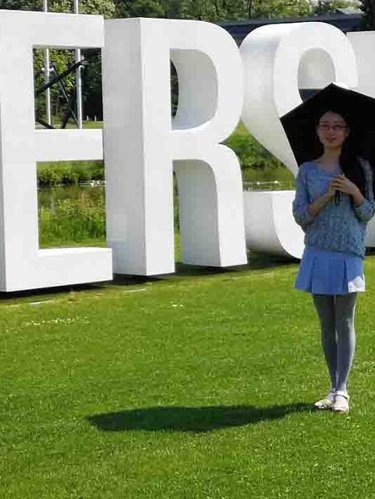Advancing Groundwater Hydrology in a Data-Scarce Mountainous Catchment on the Tibetan Plateau: Challenges and Innovations
Mengna Li is a PhD student in the Department of Water Resources. (Co)Promotors are prof.dr. Z. Su, dr. Y. Zeng and dr. M.W. Lubczynski from the Faculty ITC.
 Climate warming is altering the water cycle on the Tibetan Plateau (TP). Groundwater is a crucial component for human use within this cycle. However, studying groundwater on the TP presents significant challenges due to data scarcity, complex topography, and intricate geology. This thesis aims to understand groundwater in the Maqu catchment, a data-scarce area on the TP.
Climate warming is altering the water cycle on the Tibetan Plateau (TP). Groundwater is a crucial component for human use within this cycle. However, studying groundwater on the TP presents significant challenges due to data scarcity, complex topography, and intricate geology. This thesis aims to understand groundwater in the Maqu catchment, a data-scarce area on the TP.
Intensive fieldwork is carried out to obtain a comprehensive dataset, including borehole core lithology, soil thickness, altitude, hydrogeological data (groundwater level and aquifer test data), and hydrogeophysical data (MRS, ERT, and TEM). The hydrogeochemical composition and stable isotopes (δD and δ18O) of surface water and groundwater samples collected in the Maqu catchment are analyzed. One of the key findings is confirming the presence of an unconfined river deposit aquifer in the eastern study area.
A systematic methodology for integrating diverse datasets from various sources to develop a comprehensive conceptual model for the Maqu catchment is proposed. This approach incorporates a wide range of data, including hydrogeological and hydrogeophysical data, bedrock depth information, reanalysis datasets, and satellite-derived gravimetry and altimetry data.
A numerical groundwater model is established and calibrated. However, simulating only the downstream flat region or calibrating using only downstream groundwater level data may lead to a significant underestimation of groundwater recharge. Therefore, incorporating the upstream mountainous regions and utilizing time-series groundwater level data from these areas is crucial for accurate groundwater modeling.
To generate a physically consistent set of hydrogeological parameters for groundwater modeling, inverse distance weighting (IDW) and ordinary cokriging (OCK) are implemented to extend parameters (hydraulic conductivity, specific yield, and recharge ratio) from point measurements to the entire Maqu catchment. The performances of simulated results using interpolated parameters are generally similar, but each interpolation method exhibited distinct strengths and limitations.
This thesis contributes to the understanding of groundwater in the data-scarce Maqu catchment on the Tibetan Plateau.





